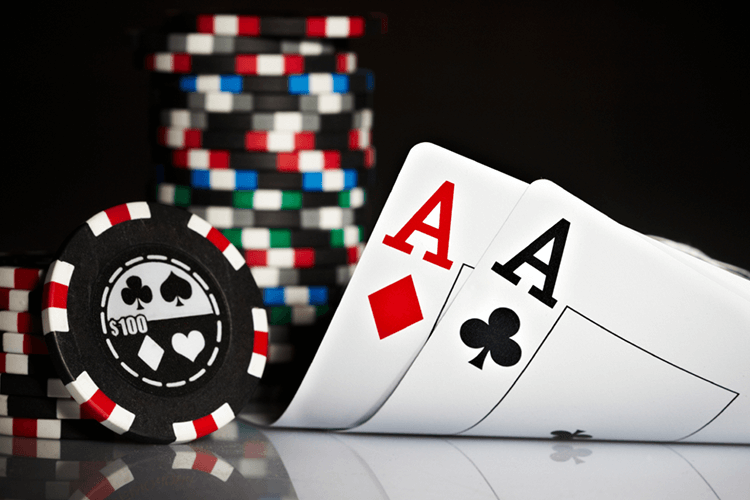Poker Rules
Before you start playing poker, especially for real money, it may be worthwhile to familiarize yourself with poker rules. An important common denominator that applies to all poker games is the value of the poker hand. Usually, it is the highest cards that will give you the win, but in some games it is the lowest cards or both the lowest and the highest cards that will secure you the pot. Read on to find out more about poker rules and other great poker tips - we'll show you how to become a good poker player.
Texas Hold'em is one of the easiest games and learning a fresh start. Usually, the game starts with players putting a certain amount into the poker pot, so there is always a pot to play for - this is called blinds , small blind and big blind. All of the players are dealt two cards each, which must be facing down towards the table. In the next step of the game, all players must bid on what kind of cards they have been dealt. The amount will usually depend on what kind of table you are playing on and who you are playing against. When all players have bet, the dealer should remove the top card in the belly, which is a trick to prevent cheating. Namely, the dealer must always "fire" a card when putting out cards that everyone should see.
The cards that the dealer puts out on the table are now called the " flop ". These are three cards that everyone can see. A betting round is followed each time the dealer puts down a new card. After the round of betting, the dealer spins another card and places the fourth card on the table. This card is called " Turn ". After the betting round, the fifth and final card is placed on the table - River. After this round of bidding, we will have a winner anyway, either by a bid so the rest folds, or for a " showdown " (where everyone shows their cards). But a game doesn't have to go all the way to the River. For example, you can win the pot before the flop if you make your opponents fold.
To increase the chances of winning, there are several different poker strategies to follow. A common mistake among beginners is to misinterpret the table or try out stupid bluffs. As a beginner, it's always smart to read about the games before you get started and familiarize yourself with various strategies. Some good tips, especially for beginners, are to think before you shop. In poker, time is given for thinking which is wise to use. Not the least, most poker players are nice people who are happy to answer questions. Learn when to give up (throw up), follow the gut feeling and keep your head cold. It is also very important to know the game's basic principles well before embarking on real money games.
It rarely comes out of being too bold in poker. Do not play poker with a tired head or when you are angry, learn to fold quickly and do not try to bluff with the other players on the first hand, as you will usually be exposed quickly. The most popular poker games are Texas Hold em, Hi-Lo Omaha and Stud . All these games you can play on the internet and there are countless sites offering games with different prize pools and wagering requirements. But which side should you choose? This is the most difficult, but perhaps also the most important. If you do not like a page, you should not hesitate to search for a new page. Everyone is different, and so are the poker sites. We can't make the choices for you, but we can guide you by giving you the bestthe poker bonuses and general user areas of poker sites that are far above average. Once you get well into poker rules you can also play free poker. The vast majority of poker sites offer their players to play with "play money".

